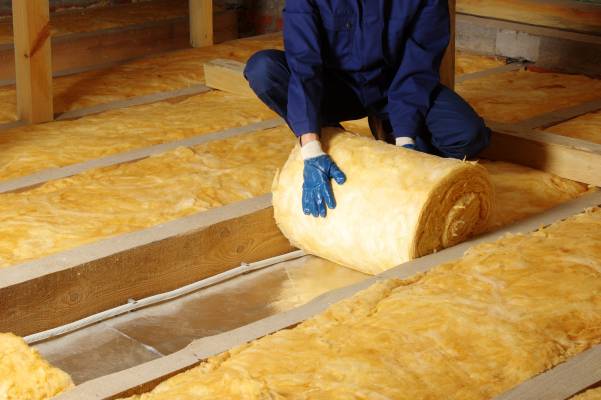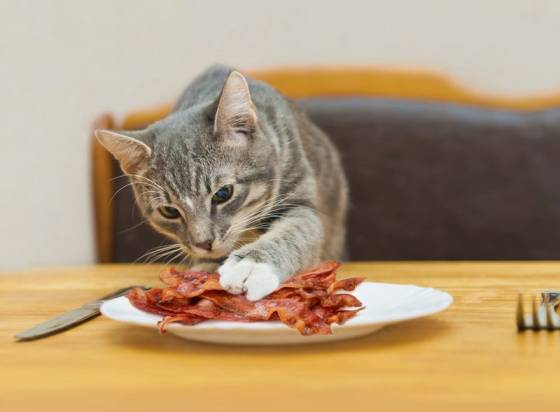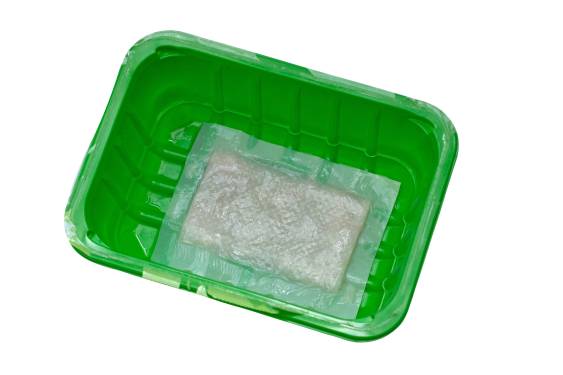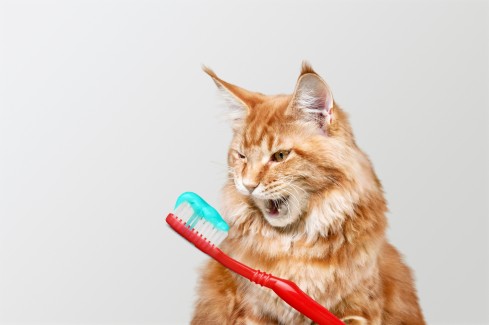Connect with a verified veterinarian in minutes. Licensed vets are available 24/7 to answer your questions. No need to worry about your furry family member.
Some home renovations involved tearing the plaster and drywall off to replace the underlying insulation. This may be done to improve the energy efficiency of the space or home. What if you have a cat, and she eats some of the insulation? Will she get sick?
Has your cat eaten insulation? Are you worried the insulation will make your cat sick? If so, you’ve come to the right place. We understand it can be scary when your cat eats something like this.
We’ve gathered information about insulation and whether it can make a cat sick. Let’s get started!
What is Insulation?
Insulation is a material used to keep a home or space from losing heat. It also works to keep a home or room cooler in the summer. There are many types of insulation, but one of the most common is made of fiberglass.
Fiberglass insulation usually comes in rolls or batts and can be used on unfinished walls, ceilings, and more. It’s usually fitted between studs, joists, and beams.
Fiberglass insulation is made of plastic reinforced with tiny glass fibers.
While fiberglass insulation is safe when used as directed, what happens if a cat eats it?
Insulation is a material used to provide a barrier in a home’s walls, ceiling, and floor. It’s used to ensure that a home is better able to regulate interior temperatures, though it can also help control noise. A properly insulated home is more energy efficient and maintains its interior temperature.
There are many varieties of insulation; however, the most commonly used in homes is made of fiberglass. Fiberglass home insulation comes in batting, rolls, or loose-fill forms. The insulation is made of extremely fine glass fibers.
Fiberglass insulation can be effective at making a home more energy efficient. However, what happens if a cat eats fiberglass insulation?
An obstruction means the digestive system is blocked. When this happens, the system is not able to work normally. Food and waste products stay in the body. An obstruction is a serious medical condition that can cause death if not treated.
In addition, the insulation irritates the tissues of the esophagus and the rest of the digestive system.
Insulation & Cats
Unfortunately, fiberglass insulation can make a cat sick. For one thing, fiberglass is rough and can irritate the entire GI tract.
Another problem is that if a cat eats fiberglass insulation, the material could clump together and form an obstruction in the cat’s digestive system. This is a dangerous condition that can lead to death if it’s left untreated.
Fiberglass insulation could also cause a cat to choke if it becomes stuck on the cat’s tongue or in her throat.

Review symptoms, medications & behavior to keep your pets healthy with a Vet Online in just minutes.
Ask a Vet Live NowSymptoms of Insulation Ingestion in Cats
You may notice these symptoms if your cat has eaten insulation:
- Vomiting
- Diarrhea (may be bloody)
- Constipation
- Lack of appetite
- Abdominal pain & swelling
- Lethargy
- Hiding
If you notice these or other symptoms in your cat, call the vet immediately. This is an emergency.
Be sure to take a sample of the insulation along for your vet to see. It can help them to see what kind of insulation your cat has eaten.
Treatment of Insulation Ingestion in Cats
The vet may order x-rays to see if your cat has a blockage. If so, they may need to perform surgery to remove the blockage and repair any damage the insulation has caused.
Your fur baby may need to be hospitalized for a time, depending on the severity of her condition.
The prognosis is best for cats who receive prompt medical treatment after eating insulation. In the future, be sure to keep all insulation out of your cat’s reach. You’ll both be happier for it!
Treatment depends on where the obstruction has occurred. In some cases, the vet may be able to remove the insulation through an endoscopic procedure. However, if the insulation is further down in the cat’s digestive tract, the vet may need to do surgery to remove it.
The prognosis is best for cats who receive prompt medical treatment after eating insulation. Most cats will make a full recovery. In the future, it’s best to keep your cat away from insulation.
If you’re renovating the house, you may want to consider boarding your cat or having her live with a relative or friend until the project’s over.
Connect with a verified veterinarian in minutes. Licensed vets are available 24/7 to answer your questions. No need to worry about your furry family member.

Tom
Tom has always loved to write since he was little - he wanted to be either a writer or a veterinary doctor, but he ended up being a professional writer while most of his works are based on animals. He was born in San Francisco but later moved to Texas to continue his job as a writer. He graduated from the University of San Francisco where he studied biotechnology. He is happily married and a soon to be father!
Review symptoms, medications & behavior to keep your pets healthy with a Vet Online in just minutes.
Ask a Vet Live Now




